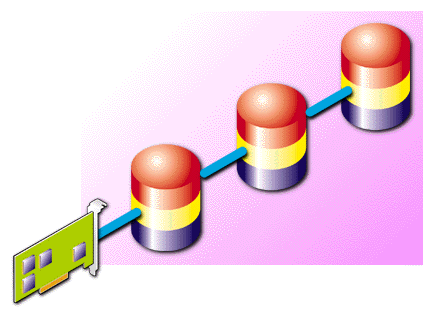DCSE Self-Study Training MaterialsRAID Theory |
|
||||||||
RAID 0
RAID 0 was never sanctioned by the RAID Advisory Board (RAB). RAID 0 is an independent array without parity redundancy that accesses data across all drives in the array in a block format. This configuration produces very high performance for single file I/O and also uses 100 percent of the drive storage capacity for storing data. To accomplish this,the first data block is read from, or written to, the first disk in the array. The second block, meanwhile, is read from/written to the second disk and so on. RAID 0 only addresses improved data throughput, disk capacity and disk performance. It is good for applications that have large file sizes and high performance requirements, such as digital video. The 100-percent storage efficiency means that all of the data storage available on the array drives is used to store data. However, this approach offers no means of recovery from a failure. If a single drive is lost the contents of the entire array is lost. The failure rate of RAID 0 increases with the number of drives in the array.

RAID 0: Striping across three independent disks.